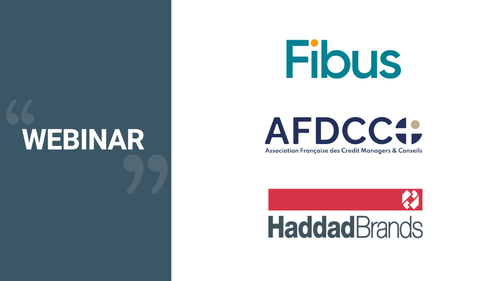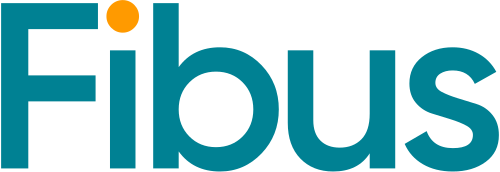

Credit insurance is a tool that enables companies that have granted their customers payment terms to cover their risk of non-payment. Given the importance of late payments and the consequences of non-payment on the cash flow of companies, credit insurance is the only tool for managing this risk. The figures prove it: in 2019, the amount of credit insurance premiums reached 7 billion, against 6 billion in 2016 (Sources: ISACA).
However, credit insurers are frequently accused of not providing sufficient support to companies, of withdrawing their cover in difficult times (particularly during the Covid-19 crisis) or of not covering the risk when it materialises!
So why do so many companies use credit insurance? Fibus provides you with some answers.
However, credit insurers are frequently accused of not providing sufficient support to companies, of withdrawing their cover in difficult times (particularly during the Covid-19 crisis) or of not covering the risk when it materialises!
So why do so many companies use credit insurance? Fibus provides you with some answers.
A tool for information and prevention
Credit insurance is first and foremost an information tool, supporting your company’s credit management practices. What payment terms can I grant my clients? How much of the client’s outstanding balance will this represent over time? Depending on these parameters, a guarantee can be given by the credit insurer.
The guarantees granted by a credit insurer are a key indicator of your client's financial strength. In addition to the public information provided by commercial information providers (Creditsafe, Altares, Dun and Bradstreet, etc.), the credit insurer has access to more detailed and confidential information, such as your clients’ payment behaviour with their other suppliers, for example.
The guarantees granted by a credit insurer are a key indicator of your client's financial strength. In addition to the public information provided by commercial information providers (Creditsafe, Altares, Dun and Bradstreet, etc.), the credit insurer has access to more detailed and confidential information, such as your clients’ payment behaviour with their other suppliers, for example.
Outstanding collection strength
Taking out a credit insurance also provides access to an efficient collection service. The weight of credit insurers is such that a client will often be more inclined to pay his/her unpaid invoices in order to avoid having his/her supplier activate his/her credit insurance. In fact, there is a real risk that a company with late payments will lose all of its supplier payment terms if an insurer initiates a collection action! The impact on cash flow (and therefore on the business in general) is often disastrous.
Furthermore, the regional network of credit insurers is very dense (France and export included), which increases the efficiency of collections. This is a significant advantage if your company has a strong export presence (or wishes to expand into the export market), where dunning and collection management is more complex than in your domestic market.
Furthermore, the regional network of credit insurers is very dense (France and export included), which increases the efficiency of collections. This is a significant advantage if your company has a strong export presence (or wishes to expand into the export market), where dunning and collection management is more complex than in your domestic market.
Support for financing your receivables
Covering the risk of non-payment, information, prevention and collection are all essential services for proper control of your client risk. In addition to improving your company’s credit management policy, credit insurance becomes essential when it comes to financing your accounts receivables.
When setting up a factoring contract, the factor requires good credit insurance coverage of customer receivables (at least 60% to 70%). The factor wishes to finance the company’s clients who are guaranteed by the credit insurer. When a credit insurance policy is already in place, the factor can use the existing guarantees. This speeds up and facilitates its intervention. Otherwise, a credit insurance study must be carried out in parallel with the factoring study.
When setting up a factoring contract, the factor requires good credit insurance coverage of customer receivables (at least 60% to 70%). The factor wishes to finance the company’s clients who are guaranteed by the credit insurer. When a credit insurance policy is already in place, the factor can use the existing guarantees. This speeds up and facilitates its intervention. Otherwise, a credit insurance study must be carried out in parallel with the factoring study.
Find out more
There are a multitude of contracts adapted to the specificities of each sector. It is therefore advisable to carry out a detailed study of your business and your customer accounts before taking out an insurance policy. Which insurer should I choose? What will be my main selection criteria? How much does such insurance cost?
As a specialist credit insurance broker, Fibus provides you with a team dedicated to the study, implementation and daily support of your insurance policies.
To find out more, do not hesitate to contact us using our contact form or go here this page to discover our approach.
As a specialist credit insurance broker, Fibus provides you with a team dedicated to the study, implementation and daily support of your insurance policies.
To find out more, do not hesitate to contact us using our contact form or go here this page to discover our approach.
These articles may interest you

How Chimirec unlocked the full potential of its factoring with ARI Trade, by Fibus Digital
With ARI Trade, the Chimirec Group has reduced the time spent managing its factoring operations from 4 days to 1.5 days per month — representing a total time saving of 30 days per year.
Additional benefits for Chimirec’s CFO include improved working capital, a consolidated view across 15 factoring contracts, and enhanced receivables traceability.
Additional benefits for Chimirec’s CFO include improved working capital, a consolidated view across 15 factoring contracts, and enhanced receivables traceability.

How the Credit Manager safeguards the company’s cash flow
A function at the heart of financial stability The Credit Manager’s role extends far beyond preventing bad debt: today, they act as the true conductor of the order-to-cash process, ensuring the company maintains healthy, predictable, and actively managed cash flow. We
spoke with Thibaut Robet, CEO of Fibus, a firm specialising in order-to-cash management.
spoke with Thibaut Robet, CEO of Fibus, a firm specialising in order-to-cash management.

How can credit insurance support growth in a sector under pressure?
Economic difficulties are mounting and weighing more heavily on certain sectors: how can you make the Credit Manager a business partner who supports the company's growth? Discover the testimony of HADDAD BRANDS EUROPE in the webinar hosted by Alexia Monteillet, Credit Risk Manager at HADDAD BRANDS EUROPE, and Marc Chaquès, Credit Insurance Director at Fibus, in partnership with the AFDCC.
Contact us, so that, together, we can find the best solution for financing your accounts receivable.
Write us
